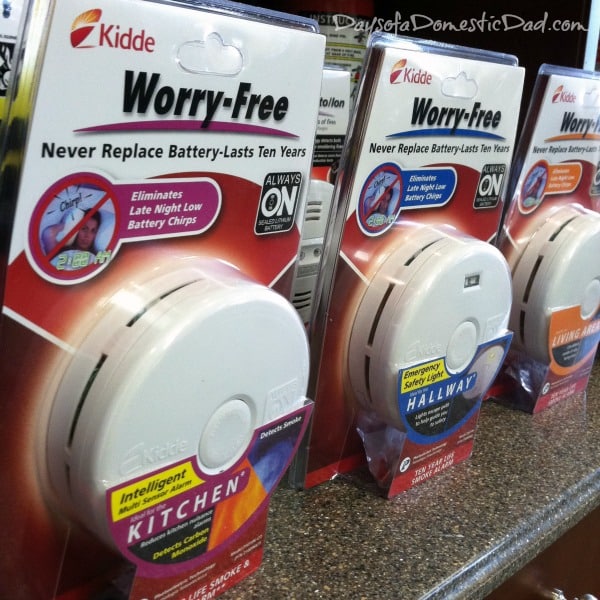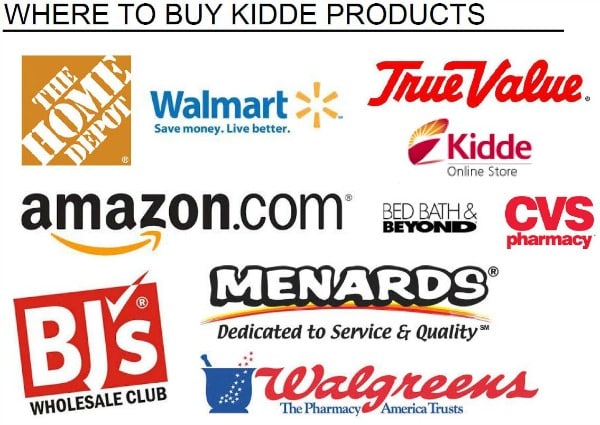Disclosure: This post is sponsored by Kidde. All travel expenses were paid by Kidde, but the blog post is all mine.
Fire Smoke and Carbon Monoxide
I am proud to be able to announce that I have joined forces with Kidde, the world’s largest manufacturer of fire safety products, as a brand ambassador. I am pleased to be able to share important and resourceful fire safety lessons and information. Safety education can mean life or death in certain situations. I feel I want my family to be prepared, and fire safety is at the top of the list.

Have you or a loved one had a fire in your home? What about a carbon monoxide incident? As a young child until now I have been very fortunate that I have not been involved in either one. I don’t know if that is because we as a family have taken extra precautions, or we are just blessed. I have been in awe of fire and the damage it can do.
I never knew as a child that even the by-products of fire can harm us just as badly. A mixture of fire, smoke and carbon monoxide can be a lethal combination. I remember growing up there was a house that had caught fire in our neighborhood. My Dad and I took a walk down to have a look, since it looked pretty bad from our house. I can clearly remember as the fire department rescued the people from the home, and asking my Dad why they weren’t moving. It was then I learned that you don’t have to get burned by the fire just to get injured. Dad explained to me about smoke inhalation and carbon monoxide poisoning on the way back home.
Below are some important facts about #CarbonMonoxide
- Make sure your home has a carbon monoxide alarm. As with smoke alarms, install a carbon monoxide alarm on every level of your home, especially near sleeping areas, and keep them at least 15 feet away from fuel-burning appliances.
- Carbon monoxide alarms are not substitutes for smoke alarms, and vice versa. Combination smoke and carbon monoxide alarms are available.
- Don’t use a grill, generator or camping stove inside your home, garage or near a window.
- If you need to warm a vehicle, remove it from the garage immediately after starting it. Don’t leave a car, SUV or motorcycle engine running inside a garage.
- If using gasoline-powered devices, store gasoline in a locked location where children cannot access it. Keep only small quantities in an approved container that has child safety features.
- Keep gasoline away from any source of heat, spark or flame. Even common household appliances such as water heaters and clothes dryers can start a gasoline fire. Be sure to store your gasoline away from anything that could ignite it.

About Kidde
As the world’s largest manufacturer of fire safety products, Kidde’s mission is to provide solutions that protect people and property from the effects of fire and its related hazards. For more than 95 years, industry leaders, the military, airlines and firefighters have relied on Kidde to deliver superior fire detection and suppression. Consumers will find that same advanced fire safety technology in Kidde’s residential and commercial smoke alarms, carbon monoxide alarms, fire extinguishers and other life safety products. Based in Mebane, NC, Kidde is part of UTC Climate, Controls & Security, a unit of United Technologies Corp., a leading provider to the aerospace and building systems industries worldwide.
Social
You may even have a Kidde products in your home and not even know it. Take moment and stop by to visit them on Twitter or Facebook, for tips, tricks and fun stuff.
Kidde Vendors

